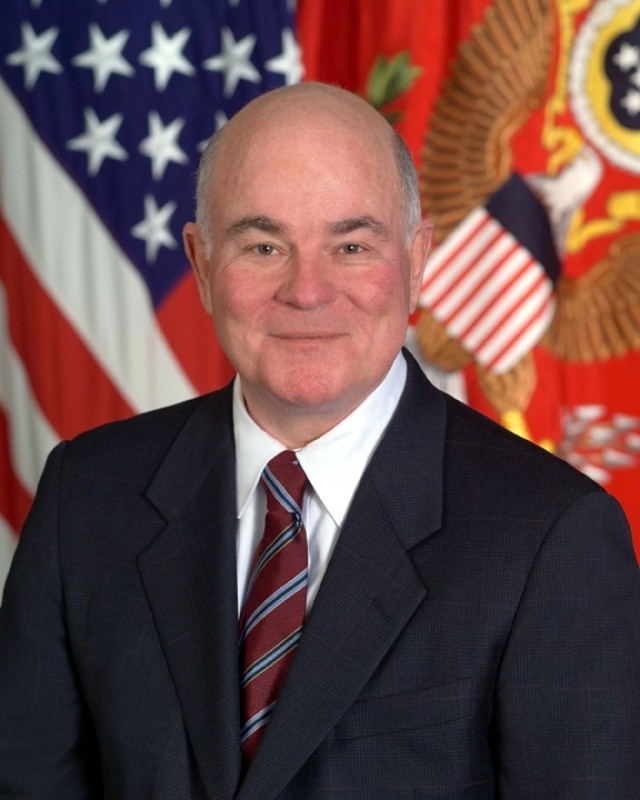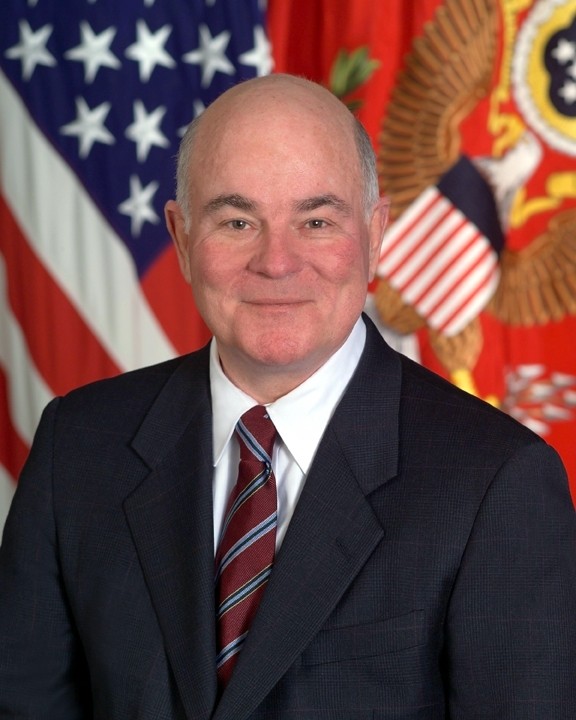
It is a great pleasure for me to be here today and have the opportunity to address the future of the officer corps. Today is a very special day, for it reflects the beginning of your return to the Operational Army where our Soldiers are courageously waging the Global War on Terrorism. It also marks the end of a period when, I hope, you were able to get plenty of rest, spend ample time with the family, recharge your batteries, and reflect on the profession of arms, as well as the essence of leadership.<br/><br/>I know many of you were deployed prior to coming to C-G-S-C. Along the way, you endured great hardships, lost friends and comrades, and made lasting contributions to the security of our Nation. My simple words here cannot adequately capture my appreciation for your service and sacrifice, but I know I express the feelings of a grateful Nation when I say how proud I am of you.<br/><br/>And I think your choice of the class print exemplifies your dedication and sacrifice - as Soldiers and as leaders. For those of you who have not seen this print - it's titled "In Honored Glory" - and it shows an officer and his family participating in a wreath-laying ceremony at Arlington for fallen Soldiers. This print, especially the participation of family members, captures the spirit of service and sacrifice of our Army families.<br/><br/>I want to thank all of our family members - those here today and those throughout the Army. Our Soldiers could not answer their noble calling of defending the values that have made our country great - this Call to Duty - without the support of those from whom they draw so much strength. It is also the family who bears the cost of war and we must never forget that they too sacrifice and serve the Nation by providing the love and support that sustains our Soldiers.<br/><br/>As you well know, the United States Army is heavily engaged in the Global War on Terrorism. Today, almost 270,000 of your fellow Soldiers are deployed, forward stationed overseas, or performing homeland defense missions. As they go deliberately about their duties, it is easy to overlook just how tough those duties are and have been. This is the best Army in the world, and it is the best primarily because of courageous men and women like you, and the Soldiers you will soon lead again.<br/><br/>Today, I want to talk with you about leaders and leadership for the dangerous and complex 21st Century operating environment. Specifically, I want to give you my vision of the leadership skills and attributes needed to be effective in this environment. And it is important to note that this vision is partly based on your recent experiences in the field. You have helped shape our vision of the skills and attributes Army leaders need to be successful today and well into the future.<br/><br/>The events of September 11th and subsequent operations in Afghanistan and Iraq have demonstrated the need for an Army that is more expeditionary, joint, rapidly deployable, flexible and adaptive. Army transformation is focused on that objective and it is a multidimensional process that involves adapting new technologies to war fighting; developing improved joint operating concepts and business processes; changing organizational structures and, most importantly, developing leaders, people, and a culture that are relevant to the future.<br/><br/>Today, we are facing a new enemy - one who is ruthless, without values, immoral, sometimes stateless and willing to employ any means necessary to achieve its objectives. In order to better meet the asymmetric threats posed by this enemy, the Army has established a vision, entitled "Relevant and Ready Land Power in Service to the Nation," which systematically combines Soldiers, our most precious resource and the centerpiece of all that we do, with three other pillars of the vision: First, innovative and adaptive leaders who are expert in the art and science of the profession of arms; second, the Army Modular Force; and, finally, the Institutional base of the Army, which develops proud and disciplined Soldiers and leaders committed to Army values and living the Warrior Ethos.<br/><br/>Leaders are absolutely key to achieving this vision. I have looked at the demographics of this class and I was very impressed with the breadth and depth of your experiences in full-spectrum operations. Accordingly, as field grade officers - as mentors to platoon leaders and company commanders - you will play an important role in our efforts to change the way we develop Army leaders in the future.<br/><br/>For the uncertain and unpredictable '21st Century operating environment, we need leaders who are decisive, innovative, adaptive, culturally astute, effective communicators and dedicated to life long learning. We need them to demonstrate character and integrity in everything they do. We need them to be experts in the art and science of the profession of arms as well as be able to lead, manage and change large organizations from both an operational and business perspective. They must excel in the political skills of governance, Statesmanship and diplomacy. They must be strategic and creative thinkers; they must build teams; they must boldly confront uncertainty; and they must solve complex problems while engendering loyalty and trust. In short, Army leaders in this century need to be Pentathletes, multi-skilled leaders who can thrive in uncertain and complex operating environments.<br/><br/>As I alluded to earlier, many of you have recently returned from Iraq and Afghanistan where conducting missions outside the bounds of what you were trained to do early in your careers has become the norm. Today in Iraq and Afghanistan Army leaders at platoon through division level are accomplishing extraordinarily complex tasks that go well beyond traditional war fighting missions. As future S-3s, X-Os and battalion commanders, you will need to remain proficient in how to fight, but you will also need to be equally skilled in accomplishing post-conflict tasks and missions.<br/><br/>To fully prepare our leaders, we must strike the proper balance between direct experience, training and education. Our programs, which we are now making tougher, more stressful and more relevant, are preparing leaders to be more comfortable while operating amidst uncertainty. Through the right mix of unit experiences, training, and education, our leaders at all levels will be able to excel in the rigors and challenges of the 21st Century security environment.<br/><br/>Many of you will experience these challenges - some for the first time - when you deploy to the one of the Army's training centers. We have, and continue, to develop training scenarios that will require leaders to routinely demonstrate initiative, adaptability and versatility in situations that are major departures from the training scenarios that you may have experienced as platoon leaders and company commanders.<br/><br/>As S-3s and X-Os, you will soon face smart, innovative adversaries at the training centers who will use all available means, asymmetric and conventional, to beat you and your Soldiers. In short, we want your worst day in the Army to be at Fort Polk or Fort Irwin - not in Iraq.<br/><br/>I have covered a lot of ground today, and I hope I have given you better insight into the tremendous changes that are occurring in the Army, and most importantly, what will be required of our leaders in the Army of the 21st Century.<br/><br/>One thing that will never change is the importance of our magnificent Soldiers. The Soldier is, and will remain, the centerpiece of the Army. I want to leave you today with the story of one Soldier that I think is indicative of the service, dedication and sacrifice of today's leaders.<br/><br/>Major Tammy Duckworth was a Blackhawk pilot in the Illinois National Guard. I visited Tammy a few months ago during her recovery at Walter Reed, where she told me an extraordinary story. As Major Duckworth flew her aircraft near Balad, Iraqi insurgents struck the helicopter with small arms fire and rocket propelled grenades. Though seriously wounded in both legs, Major Duckworth and her wounded co-pilot were able to safely land the disabled aircraft, saving the lives of the crew.<br/><br/>I asked Major Duckworth what went through her mind as she struggled to land the helicopter. She said, "Training just took over, we focused on landing the aircraft." Despite having both legs amputated, Tammy Duckworth wants to remain a Blackhawk pilot in the Illinois National Guard. She told me "No Iraqi guy with an RPG is going to dictate how I live my life."<br/>Her story, retold in countless other conversations I have had with wounded veterans from Iraq and Afghanistan, embodies the Warrior Ethos: I will always place the mission first. I will never quit. I will never accept defeat. And I will never leave a fallen comrade.<br/><br/>Thank you for the opportunity to be here today. I wish you all the best of luck in your future service to our Soldiers. God bless you and your families, God bless our Army, and God bless our great country.<br/><br/>Thank you very much.

Social Sharing